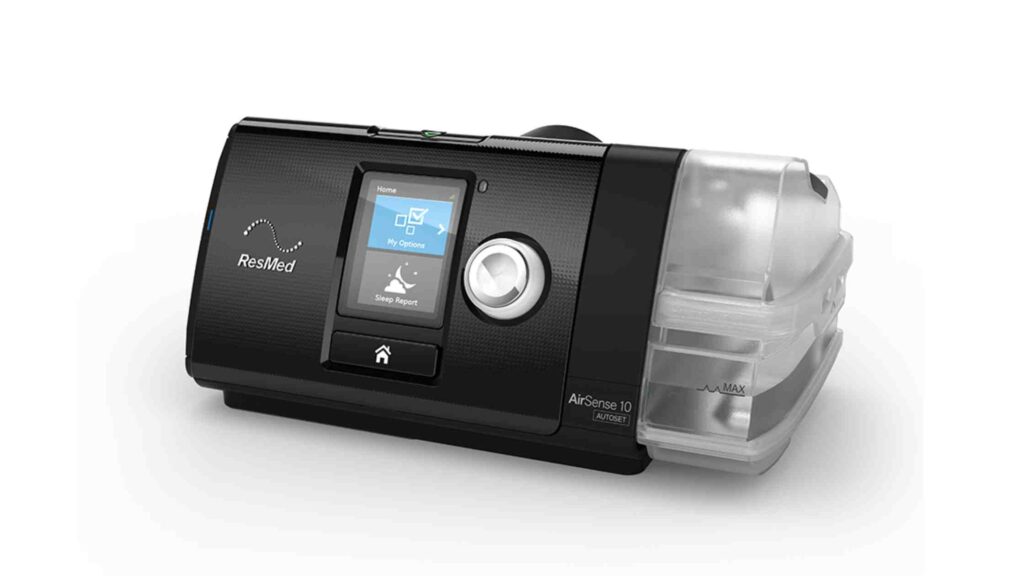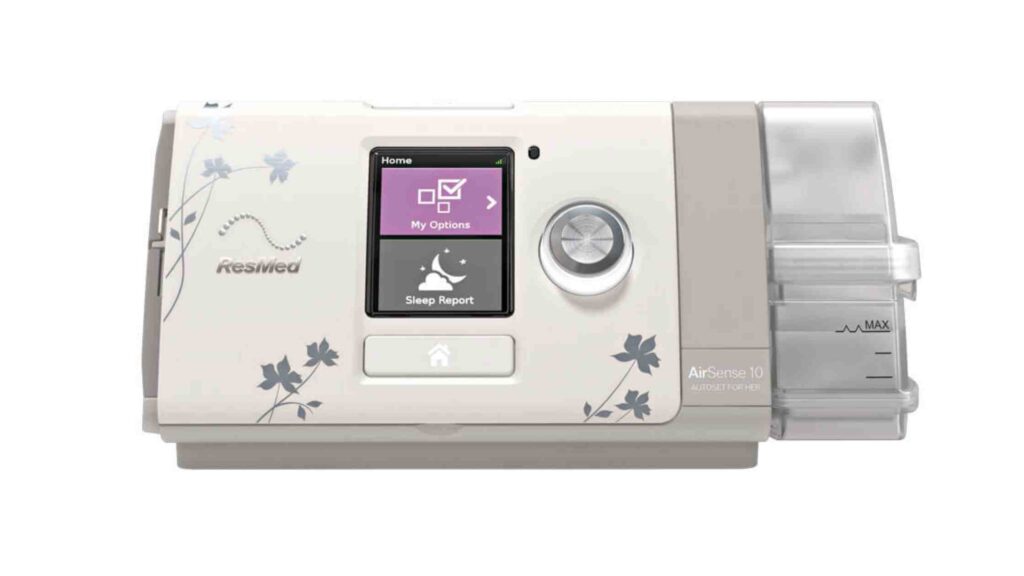Are ResMed CPAP machines being recalled? Customers can feel at ease knowing that ResMed CPAP machines are unaffected by the Philips recall. This is according to a public statement from the company’s CEO. This is so because the material used in their equipment differs from the material used in Philips’ devices.
ResMed gladly jumped in to fill the market gap created by Philips’ absence. This occurred after Philips recalled more than two dozen models of its continuous and noncontinuous ventilation systems in the middle of June 2021.
It has been a challenging journey thus far. But ResMed’s CEO, Mick Farrell, disclosed in a recent earnings conference that the firm is fighting to fill that gap. It’s due to a concurrent rise in demand and drop in resources that the device manufacturer is forging ahead. Thus, he is starting with the launch of a brand-new positive airway pressure, or PAP, device.
DiscontinuedNews is impartial and independent, and every day, we create distinctive, world-class programs, news, and content that inform, educate and entertain millions of people worldwide.
ResMed airsense 10 recall
The polyester-based polyurethane (PE-PUR) sound reduction material used in some Phillips CPAP, BiLevel PAP, and Ventilator Devices had issues. Hence, medical product maker Philips Respironics released a voluntary recall and warning notice on June 14, 2021.
According to the layout of the AirSense 10 device, air can safely move over or through foam throughout therapy, with most of the air moving all around the foam. ResMed devices are still safe for use and aren’t included in the June 2021 Philips recall. It’s because users have not seen the problems Philips reported with its products.
Patient safety is ResMed’s top focus, according to its CEO. As a result, before releasing a new product, they carefully choose the components they include in the devices. Also, they assured us that they tested them by existing safety requirements. Later, the company will evaluate the testing when other device manufacturers express concerns.
ResMed devices are safe to use, according to the data we’ve seen from Philips’ recall of its items and their thorough examination of ResMed’s contents and services.
ResMed’s team chose the polyether polyurethane foam material found in most of ResMed CPAP, APAP, bilevel, and ventilator products based on research. It shows that it is more water-proof than rival materials and, consequently, more lasting in sticky situations. One line of ResMed ventilators (Stellar) contains silicone-based foam that has undergone extensive ResMed quality system testing, verification, and validation for safe and effective use.
“As long as global component supply constraints exist, we will continue to be laser-focused on manufacturing as many sleep apnea and respiratory care therapy devices as possible,” says the CEO. ResMed’s guiding principles are followed by the products always prioritizing client care based on the severity of their diseases.
The company will continue to work closely during this era of unusually high demand. They also communicate with their customers and suppliers to better serve customers in over 140 countries worldwide. These are all things said by the CEO regarding Philip’s recall.
ResMed airsense 10 shortage

The need for ResMed’s respiratory care products is rising. Philips, a rival company, recalled its ventilators and sleep apnea gadgets. Philips expanded the recalls earlier in 2021 to 5.2 million devices. The foam used to reduce machine noise may have exposed people to harmful substances.
ResMed’s fiscal year 2022 revenue increase was expected to be between $300-$350 million. But supply chain issues made it difficult for the firm to satisfy demand. CEO Mick Farrell said at the virtual Citi Healthcare Conference, “We must be the No. 1 and No. 2 player by market share to cover the requirements.” “However, with supplier shortages, particularly in electronic parts and semiconductors, we simply cannot compete with all the demand.”
The company’s recent supply chain modifications are one reason Farrell anticipates improving the issue later. Even so, it’s still being determined precisely when Philips will re-enter the industry. Even if it can be delayed into 2023, the Dutch multinational intends to complete its project to replace and fix the damaged gadgets by the end of 2022.
Needham analysts warned that Philips might not join the market again until 2023. ResMed’s Farrell claimed at the conference that it would have a massive effect on physicians, healthcare providers, and the entire ecosystem. It’s been tough. With 5.5 million affected products, “I think the customers are the hardest hit hardest in an incident like this.”
Analysts at Needham predict that ResMed will grab all of the market shares it can, with revenue growth decreasing in 2023 when Philips comes back as a rival in the industry.
ResMed airsense 10 problems
The ResMed AirSense 10 CPAP machine, recognized for its silent operation and built-in humidification, has emerged as one of our most well-liked CPAP units in 2022. Like other CPAP devices, the AirSense 10 has a five-year projected lifespan, during which users can have questions about the gadget’s features.
Filling up the water container or connecting our device could be quick fixes, or the issue is more complicated and requires further research. It’s critical to identify and address ResMed AirSense 10 issues as soon as possible because they may impact compliance.
If we don’t apply sufficient humidity or if the mask does not fit properly, air may leak out of it while users sleep. An increase in humidity could be beneficial if our mask fits well. If users feel their existing mask isn’t giving them the best fit, think about using a chin strap or switching to a full-face mask. Experiencing a dry mouth when users awaken can be painful.
The airflow will be released if the device is still running and we are awake. It should have stopped cooling down within 20 or 30 minutes to avoid condensation in the tubes. It is an odd aspect of daily life, including turning the gadget off. Hence, this is a typical moment for individuals to search for ResMed AirSense 10 debugging advice.
When a ResMed AirSense 10’s screen blinks, it may appear like a catastrophic malfunction is occurring. But it may simply be upgrading itself. Even if our system happens to receive an update immediately before we go to sleep, we can be sure that it will be brief until we can use it.
The ResMed AirSense 10 seems either asleep, or the electricity has been cut if the display is black and won’t turn on. Common ResMed AirSense 10 issues can be easily fixed by hitting the home button to turn the machine back on. Also, problems can be avoided by making sure the power source is plugged into every location on the gadget, and problems can be avoided.
So, these were the common issues faced by the users of ResMed air sense 10. Also, it has solutions to fix the problems.
Conclusion:
ResMed has needed help supplying the additional demand. William Blair analysts predicted that the recall would result in “persistent market share increases, verging on permanent” for ResMed. The experts continued in a research note that the worst-case scenarios for Philips Respironics are more possible.
References:
https://www.resmed.com/ en-us/other-manufacturer-recall-2021/
https://www.resmed.com/ en-us/healthcare-professional/other-manufacturer-recall-2021/
https://www.medtechdive.com/ news/resmed-ceo-philips-recall-CPAP-demand/619372/
https://www.medtechdive.com/ news/resmed-supply-constraints-could-last-18-months-after-philips-recall/625261/
https://www.thecpapshop.com/ blog/airsense-10-troubleshooting/
https://carlawillsbrandon.com/ how-to-fix-common-issues-with-your-resmed-airsense-10-device/
